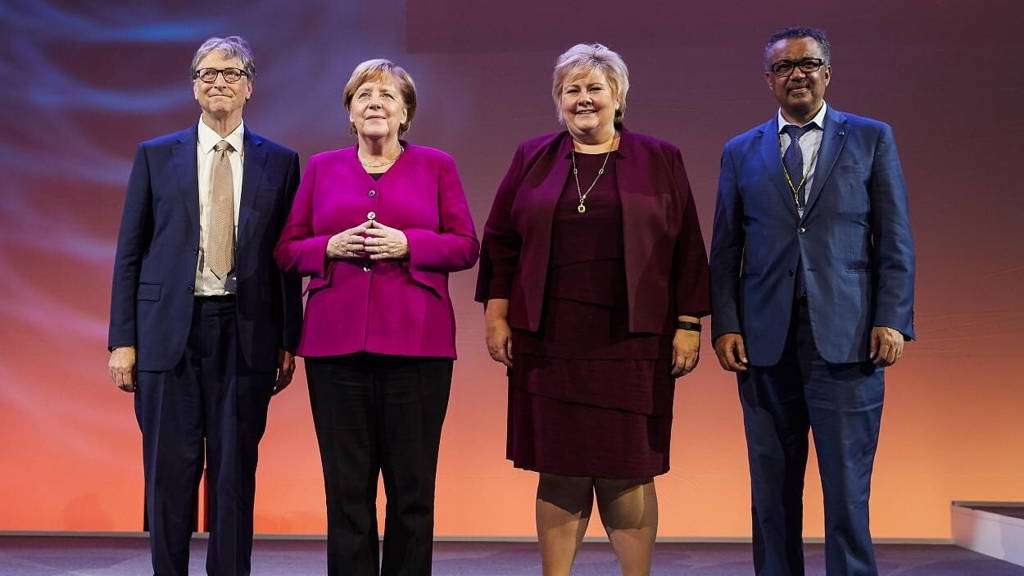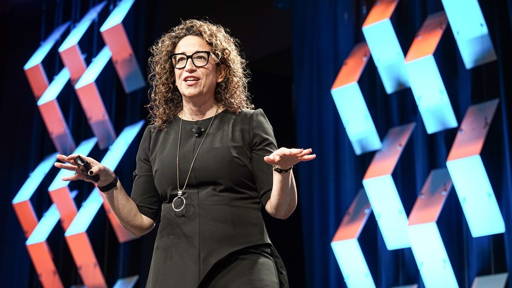The Grand Challenges Annual Meeting 2018 in Berlin hosted on stage Microsoft founder Bill Gates, German chancellor Angela Merkel, WHO Director-General Dr Tedros Adhanom Ghebreyesus and prime minister of Norway Erna Solberg.
Wise innovations for people
“We have to advance innovation for a healthier, safer and more prosperous world. We need innovations to achieve health-related Sustainable Development Goals” – it’s a key message of The Grand Challenges Annual Meeting and World Health Summit joint plenary session. Bill Gates, co-chair of The Bill & Melinda Gates Foundation highlighted the gap between amazing innovations and great challenges in different parts of the world. – Innovation comes in many forms. It doesn’t always mean inventing something entirely new. We need to pay more attention to the new innovations in often neglected areas – he said. Gates reminded that we have vaccines for the diseases that are killing people – the problem doesn’t lie in the lack of innovation but in its wrong distribution. The tools we have today are not enough to tackle the world’s health challenges. We need leaders in science and in politics to step up. German chancellor Angela Merkel pointed out that health is a human right and a joint global responsibility. Multilateralism creates win-win situations for each and every one of us. Health is essential for wellbeing and human dignity and global issues require global responses. Being healthy isn’t just an individual’s responsibility, it’s something we need to tackle together at the community level and globally. – An investment in healthcare is an investment in people. We have to work together for better healthcare, efficient healthcare systems, healthy environment, healthy world and modern medicines. Disease and epidemics do not stop at borders, they do not only put individual health systems to the test, they can also jeopardize the security and development of whole regions – said Merkel.Fragmentation, duplication and inefficiency are undermining progress– We don’t need innovation for its own sake. We need innovation that works for people. Innovation with a purpose – highlighted dr Tedros Adhanom Ghebreyesus. In the opinion of WHO Director-General, we still work in silos. Fragmentation, duplication and inefficiency are undermining progress. We must do something differently. Another challenge is to make innovation available for all. A keynote of the prime minister of Norway, Erna Solberg was focused on an equal access to technologies. She said that innovation is a key for progress on all of the Sustainable Development Goals (SDGs) but modern technologies are not always affordable and accessible for all. – We have to invest wisely in good ideas for social and economic development – said Solberg. Innovation means having a courage to do things different. To make sure that the innovation we work on is the right one, we should keep asking ourselves, why do we innovate, how do we want to distribute innovation where it’s most needed and if we would accept this innovation for ourselves.
Digital health can help
While innovations and digital technologies are booming in the developed countries, in some parts of the word people still have to face basic health threats. In 2016, there were 216 million malaria cases and an estimated 445 000 malaria deaths. A number of tuberculosis related deaths reached 1.67 million. Like never before, there is an urgent need to apply innovations and new technologies like digital health, telemedicine, mobile health, artificial intelligence and big data to deliver healthcare in efficient, effective way and to speed up the development of new medicines. In this case innovation also means the way how we distribute technological advancements to those who need it most. Founded by the Bill & Melinda Gates Foundation, the Foundation for National Institutes of Health, the Wellcome Trust and the Canadian Institutes of Health Research in 2003, the Grand Challenges initiative seeks to incentivize the best and brightest minds to find solutions to the most pressing problems facing people in the developing world. Grand Challenges partners have invested more than $1 billion into more than 2,300 innovations from 91 countries to, among others, create and improve vaccines, combat drug resistance, and improve the nutritional value and resilience of crops. Among many projects presented this year at the Grand Challenges Annual Meeting in Berlin, many related to digital and mobile health. For example:- Improving medication adherence – this project aims to help tuberculosis patients take their medications correctly, through labeled blister packaging and mobile-phone based monitoring and notifications.
- Diagnosis pneumonia by phone – the challenge is to simplify pneumonia diagnoses by developing algorithms that analyze coughing and respiratory sounds during sleep recorded on common devices like mobile phones.
- Upgrading vaccine supply chains – a cloud-based supply chain platform that allows real-time data on vaccine supply and demand to be accessed by mobile phone. It should maximize immunization coverage for children worldwide.
- Keeping track of medicines – mobile-phone based “bulletin-board” to monitor availability and demand for vaccines and medicines to better meet need and reduce waste.








